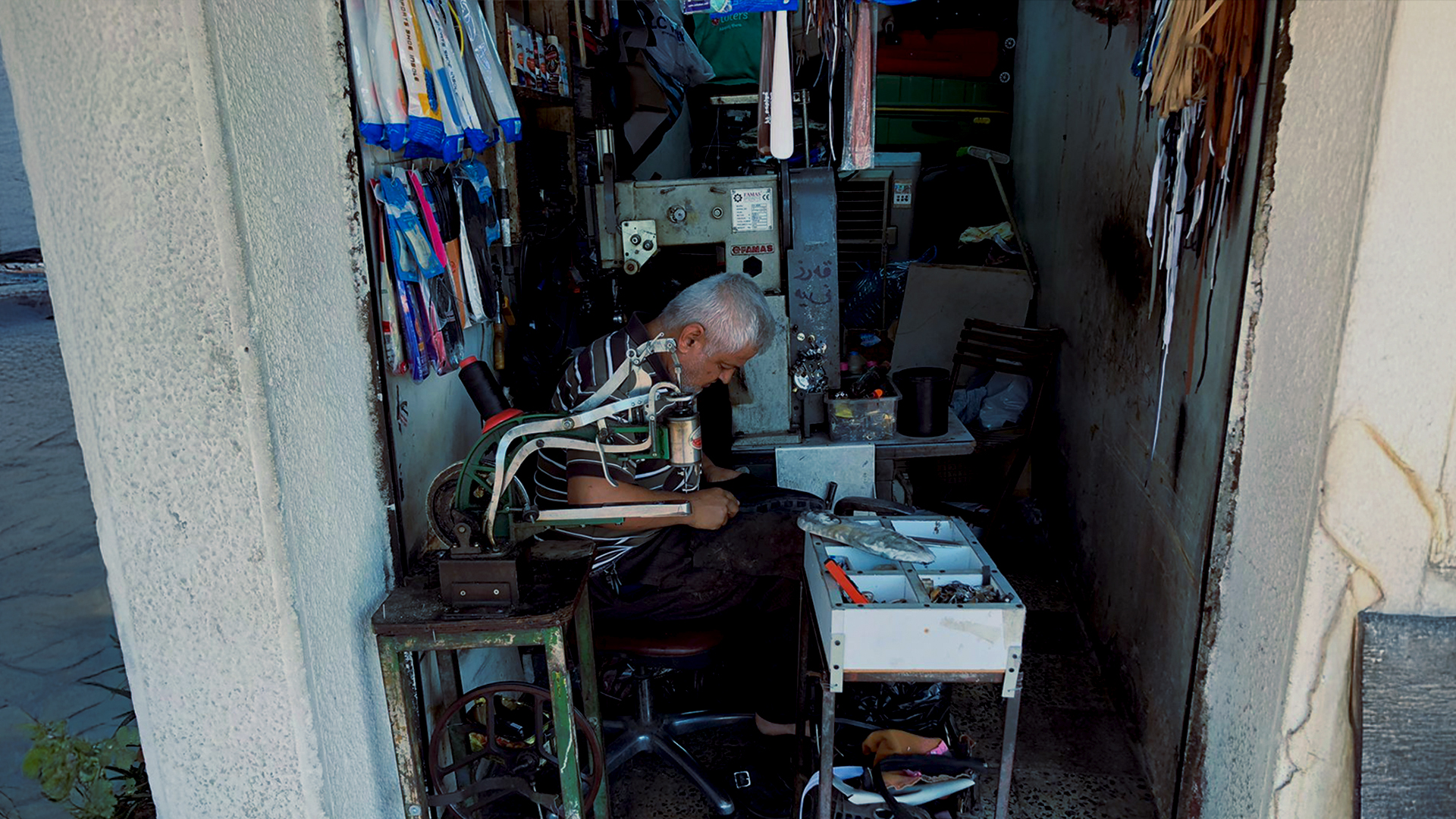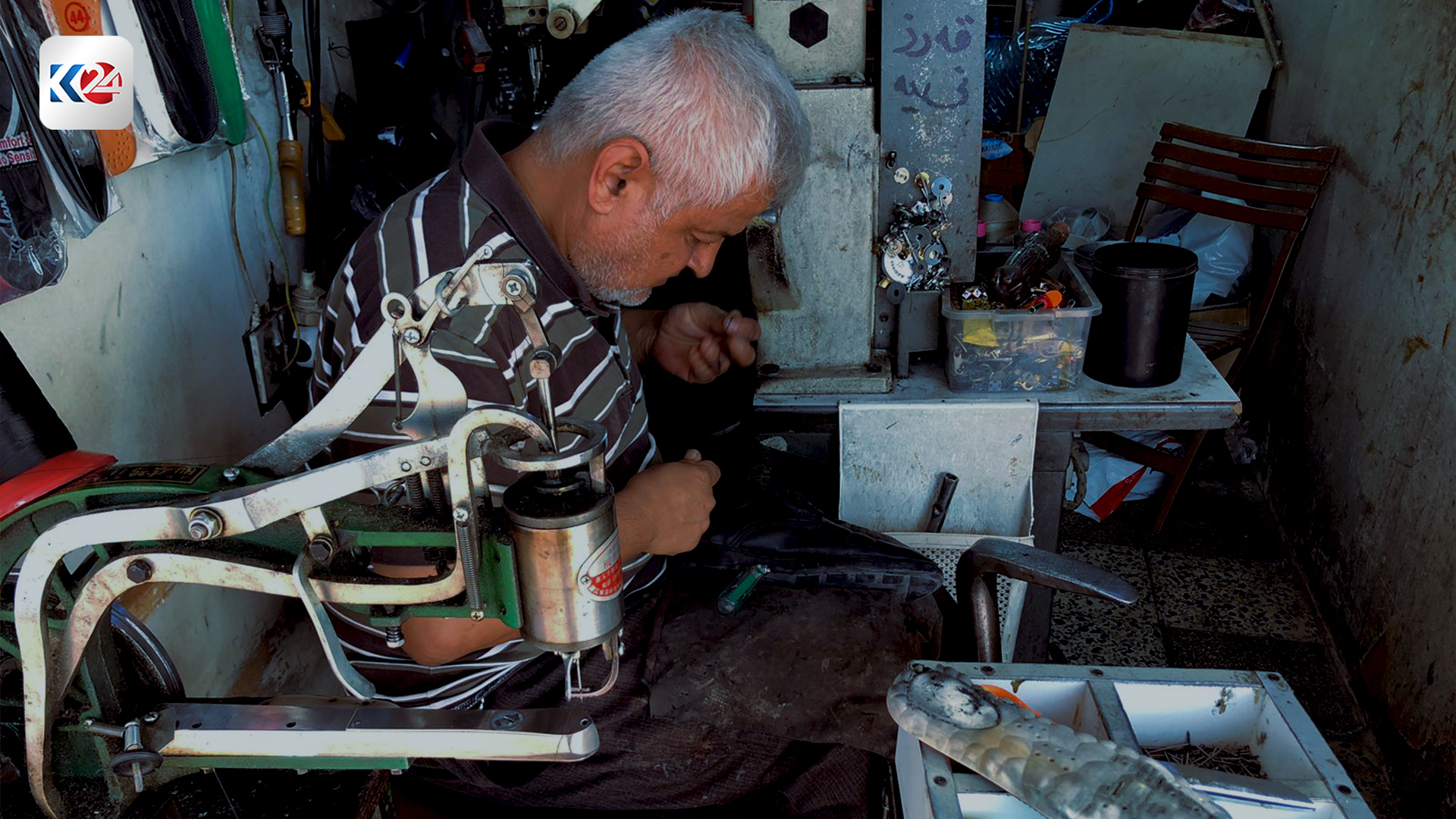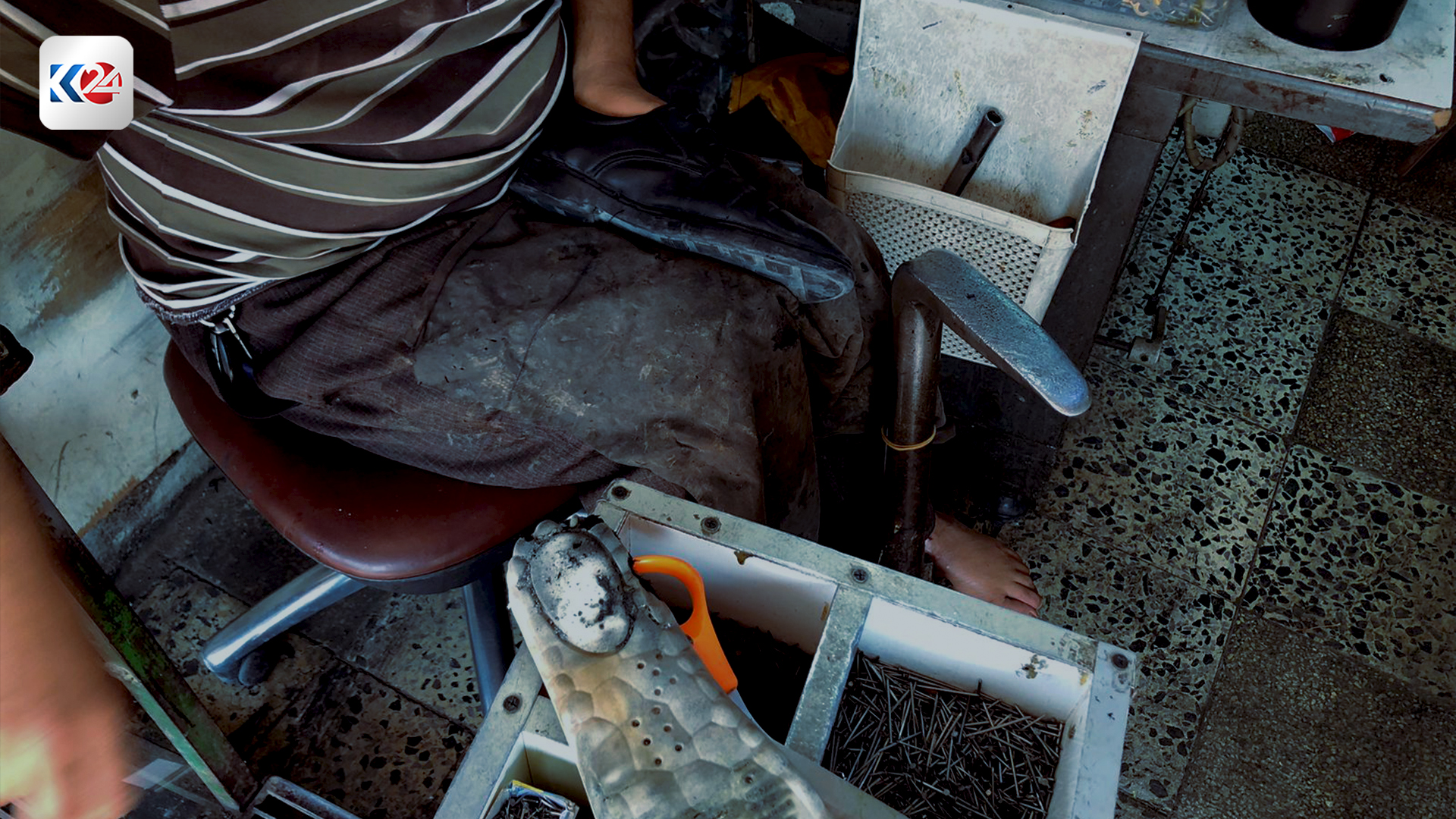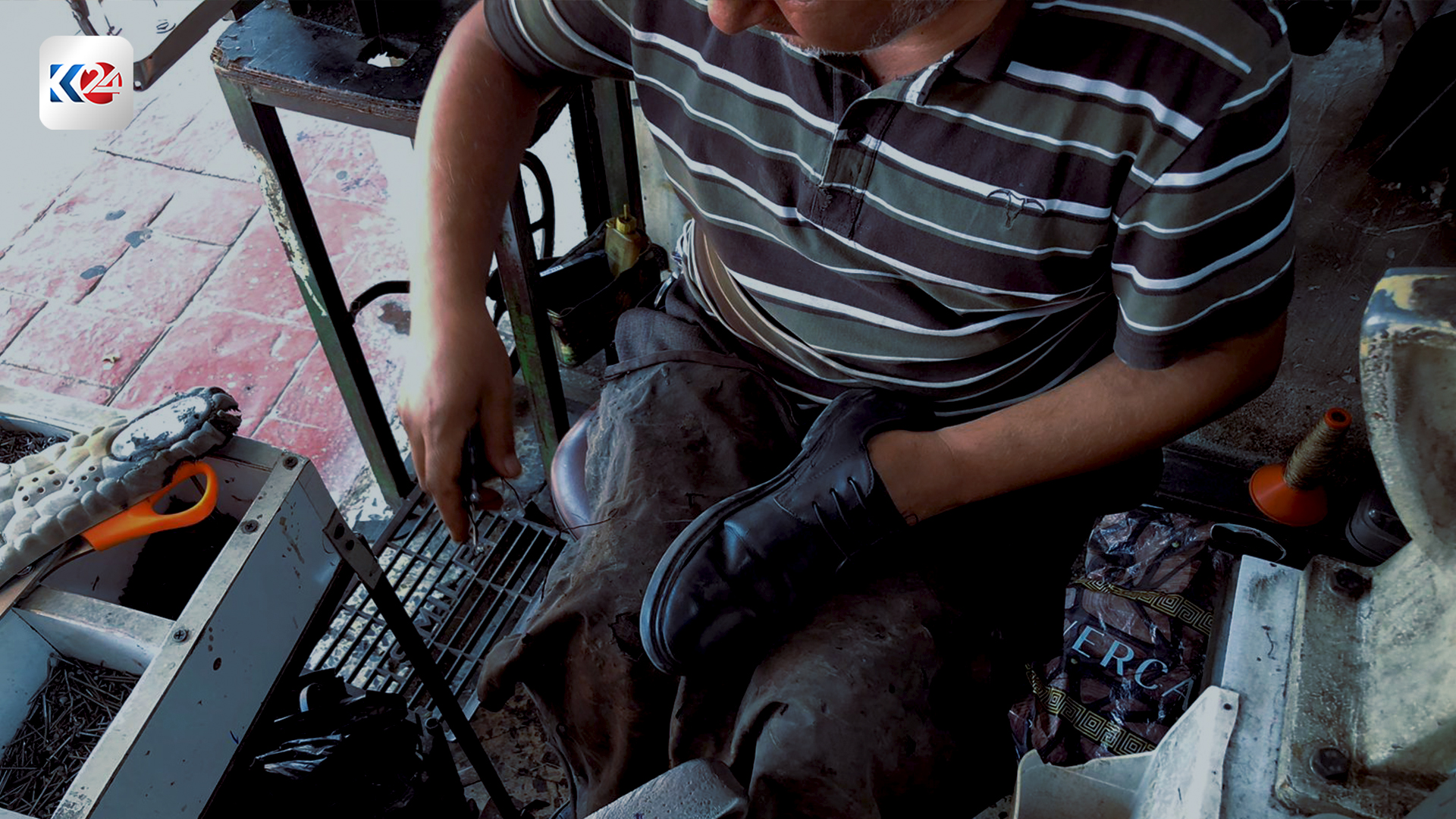The Cobbler of Teyrawa: A Craftsman's Unwavering Stand in a Changing World
In Erbil's Teyrawa market, Fuad the cobbler has been mending shoes and providing for his family for nearly 30 years. In his small, historic shop, he continues a centuries-old tradition, embodying a craft he says is more valuable than many modern jobs in a testament to skill and perseverance.

ERBIL (Kurdistan24) – In a small, cramped alcove tucked just below the bustling fabric shops of Erbil's Teyrawa market, a rhythmic and familiar sound punctuates the daily cacophony of the city: the steady, percussive tap of a cobbler's hammer. Here, in a space no larger than a whisper, Fuad the cobbler sits hunched over a worn-out shoe, his hands, skilled in the ancient arts of thread and nail, moving with the practiced grace of a master craftsman.
For nearly three decades, from this humble perch on the central median of Teyrawa, he has been a quiet but essential fixture in the life of the city, a guardian of mobility who, in his own words, does more than mend leather—he hides the flaws and extends the life of the things that carry people through their days.
His shop, one of two that have occupied this sliver of land since the 1970s, is a portal to another time. It is a space thick with the earthy, nostalgic aroma of tanned leather, wax, and polish, a world away from the fast-paced consumerism of the modern city that swirls around it. Here, surrounded by the tools of his trade—awls, knives, spools of waxed thread, and a formidable, vintage sewing machine—Fuad embodies a tradition that is as ancient as civilization itself.
When he speaks of his profession, he does so with a simple and profound sense of identity, even asking to be called by the name of his craft.
"I have been doing this work since the early 1990s," Fuad the Cobbler (or Fuad Pînedoz in Kurdish) told Kurdistan24 on Friday. His journey into the trade was a traditional one. "At first, I worked as an apprentice, but I quickly became skilled in the trade and set up my own shop."

His early years were a testament to the precariousness of a small business, as he "moved locations many times because I was a renter." But for the last quarter of a century, this small shop in the heart of Teyrawa has been his constant. "I have been in this location for about 25 years," he said with a quiet pride. "There is no one here who doesn't know me."
His long tenure has made him a well-known and trusted figure, a living landmark in a city that is constantly in flux. Every day, a steady stream of customers makes their way to his small workshop.
"Every day, men, women, youth, and children visit us to mend their shoes, sandals, or bags," he explained. In his view, his role is a noble one, a service that goes beyond mere repair. "By mending them, we hide their flaws," he said, a simple statement that captures the dignity inherent in the act of restoration.
The history of his profession is a long and storied one, a narrative that stretches back to the very dawn of organized society.
As detailed in historical accounts of the trade, the need to protect the human foot is ancient, with shoemaking becoming a recognized and essential craft in the great civilizations of Egypt, Greece, and Rome.
The medieval period saw the rise of powerful guilds and a fierce distinction between the "cordwainer," who made new shoes from new leather, and the "cobbler," who was the humble but vital mender of old shoes.

The Industrial Revolution shattered this artisanal world, replacing the master craftsman with the factory line and ushering in an era of mass production. Yet, through it all, the neighborhood cobbler endured, a custodian of quality and a bastion of a pre-industrial world of mending and making do.
Fuad is the modern inheritor of this ancient and noble legacy. He is a craftsman who has weathered not only the changing economic tides but also the profound societal shift toward a "throwaway culture," a world in which repair is often seen as an old-fashioned and uneconomical choice.
Yet, he has persisted, his dedication to his craft a quiet act of defiance against the currents of modern consumerism.
When asked if his profession is still enough to meet the needs of his family in a world of ever-increasing costs, his response is one of unwavering and deeply personal conviction. "This job of mine is more valuable than many other jobs and is special to me," he stated, before adding a phrase that perfectly encapsulates his profound connection to his work: "I embody my craft."
This is not just a job for Fuad; it is his identity, a source of purpose and a way of life that has allowed him to provide for his family with honor and skill. "I love my profession because it has allowed me to provide for my family," he said. "Although the cost of living is increasing day by day, I have stuck with my job."
In an age of fleeting trends and disposable goods, the rhythmic tap of Fuad's hammer in the Teyrawa market is a sound that continues to resonate. It is a testament to the enduring value of craftsmanship, of service, and of the simple, profound act of mending what is broken, a tradition that, in the skilled hands of masters like Fuad, continues to keep the city and its people moving forward.

Kurdistan24's reporter Shorsh Harki contributed to this report.